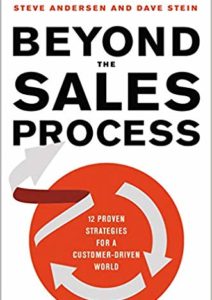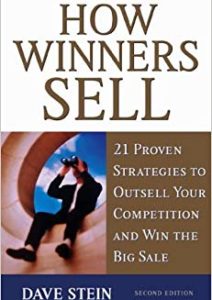If I’ve learned anything from over a decade of guiding companies through evaluating and selecting the right sales training provider, it’s that luck and superstition have no place in such an important process. That’s why business leaders who don’t shy away from following these 13 best practices are consistently successful in their efforts to engage a training partner that can help them meet their goals:
1. Form an evaluation team and steering committee.
The group should be comprised of at least two, but no more than five, member. The VP of sales must be part of the team.
2. Determine your requirements first.
Avoid talking with potential providers before you know what you need. The training company will want to focus any conversation on what they are uniquely capable of offering, which may have little to do with what your real needs are.
3. Put your requirements in writing.
You shouldn’t just understand your selling requirements, you have to document them. Take into a account your customers’ buying trends, preferences, alternatives, history, practices, and relationships with other suppliers, and determine what it takes for your salesperson to sell to them.
4. Evaluate how your sales team is currently performing.
Determine, as objectively as possible, how your salespeople are performing both individually and as a team. Identify the gaps between what your customers’ buying process requires and your salespeople’s ability to exhibit those traits, skills, and behaviors. Document the gaps.
5. Determine your performance objectives.
What are your expectations for this initiative in terms of top-line revenue, win/loss against specific competitors, sales cycle length, average selling price, average discount, etc.? Document those objectives.
6. Evaluate your current sales methodology, sales processes, selling tools, and training approach.
Can you validate that each component, as it currently exists, directly supports ongoing performance improvement? Identify which ones do, and which ones don’t. Document it.
7. Conduct an assessment of your sales team.
Every salesperson and sales manager should be evaluated through a proven set of psychometric and skills assessment tests. Be prepared to learn that over 20 percent of your people are not suited for the sales positions they hold. Implement a plan to redeploy those resources over a period of time. Keeping them on the team will severely limit your ability to achieve your objectives.
8. Create a sales training requirements definition.
Your definition should consider the infrastructure, skills, tools, learning, reinforcement, technology, coaching processes, and management training required to enable the majority of your salespeople to deliver at or above target.
9. Distribute the requirements definition to no less than five sales training providers.
Each training company should have expertise and experience that matches your requirements. Require them to respond in writing, and to include everything that their solution entails. It is absolutely essential to compare each training provider against a fixed set of requirements. Any provider that is unwilling to respond should be eliminated from further consideration.
10. Meet with your two finalists.
Once you’ve narrowed the field down to two, invite those providers to spend time with you and key stakeholders. You are now ready to hear about each provider’s vision of a solution and why they believe they are uniquely qualified to meet your requirements.
11. Check references.
Once you have made a final selection, you should call no fewer than ten of the references that the firm has provided. Keep in mind that you’re likely to hear nothing but praise from the first five you talk to. When you move further down the list, you become more likely to hear what it’s really like doing business with the firm you have chosen. If you think checking references is a waste of time, try imagining the actual cost of selecting the wrong provider because you didn’t bother.
12. Negotiate a shared-risk shared-reward agreement, if you can.
Your sales training partner should know that they will get a large part their fees right away, but some amount will be withheld until your objectives have been attained. The provider should also be entitled to a bonus if their solution exceeds your objectives.
13. Measure!
It’s critically important that you measure performance against your original objectives (point 5). But don’t fall into the trap of only looking at lagging performance indicators, such as how your team did last month, last quarter, or last year. Sales performance can be enhanced significantly through the use of leading indicators—such as a lack of adherence to your sales process and fixing it on the spot—before deals are lost.
For more information, you can view this SlideDeck:












